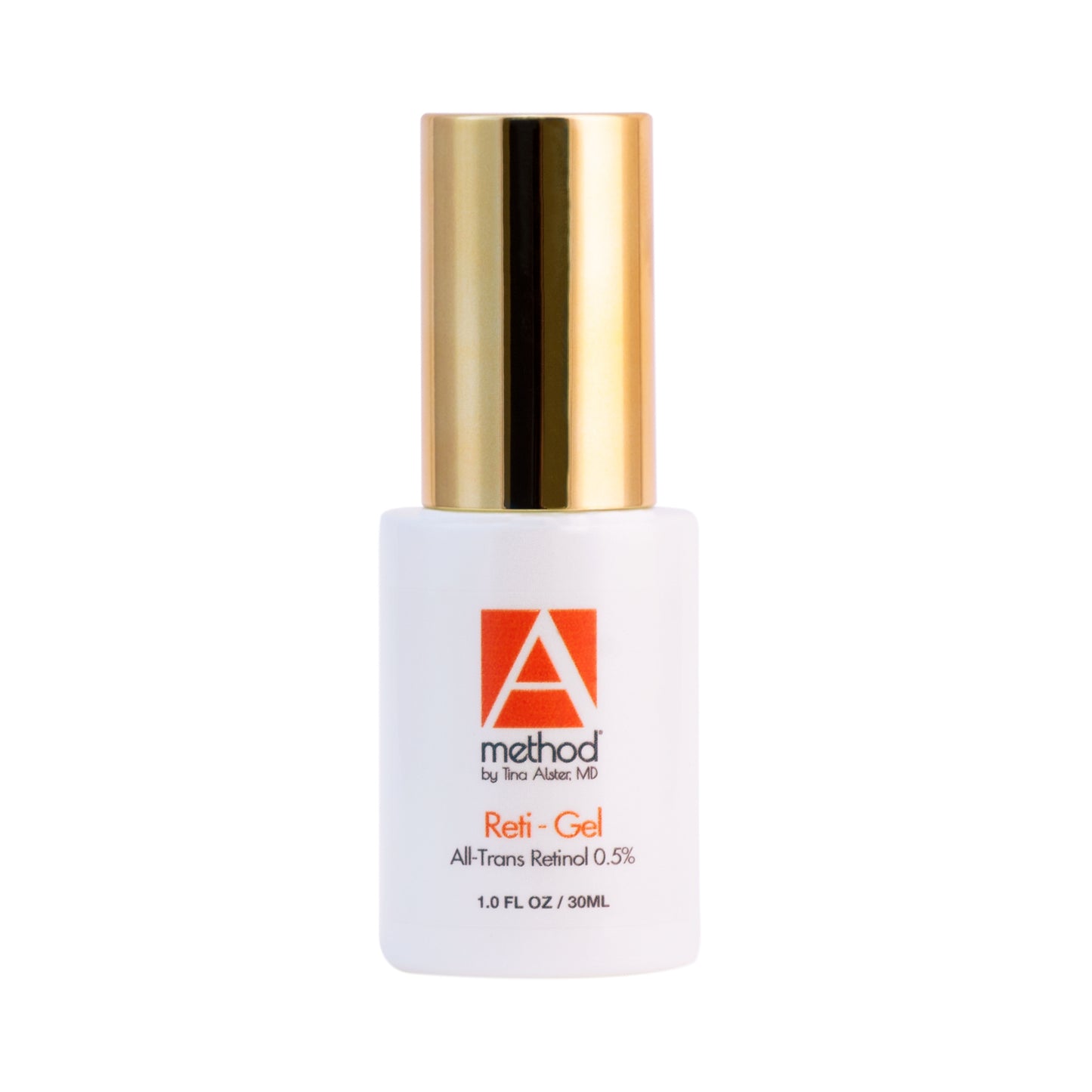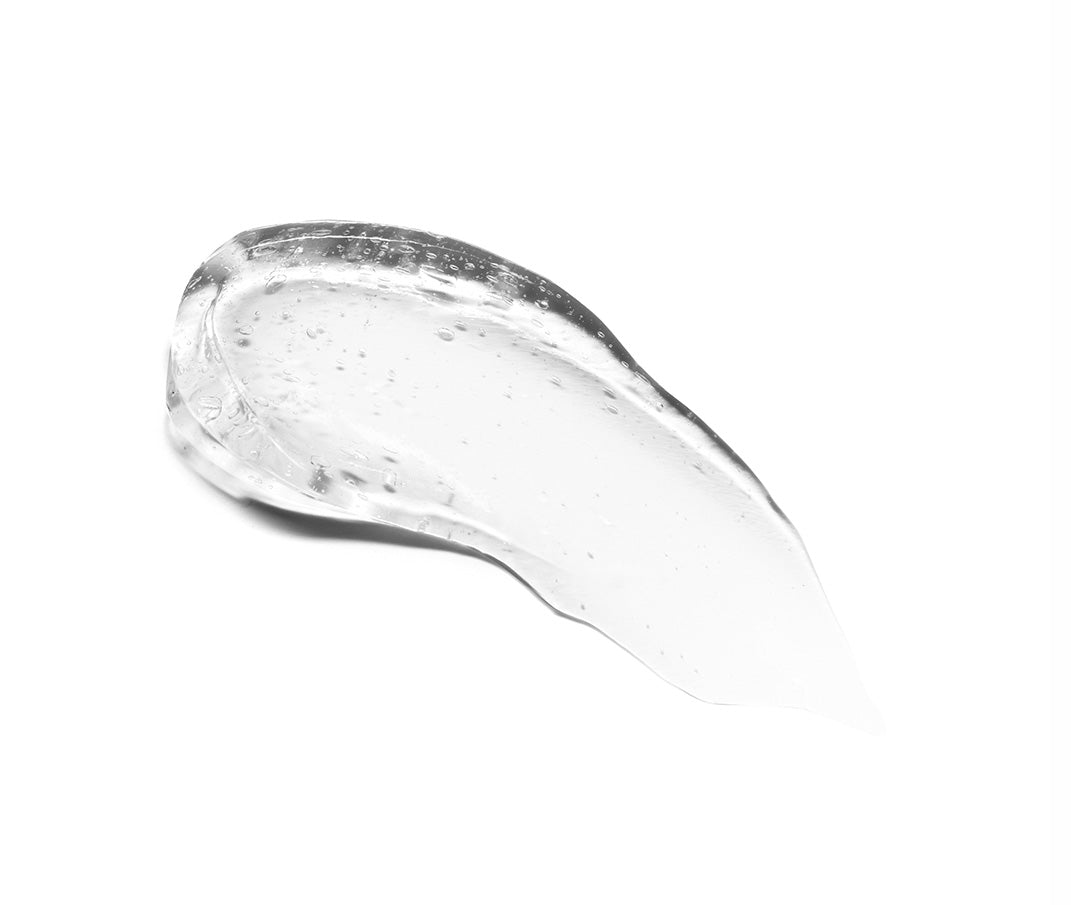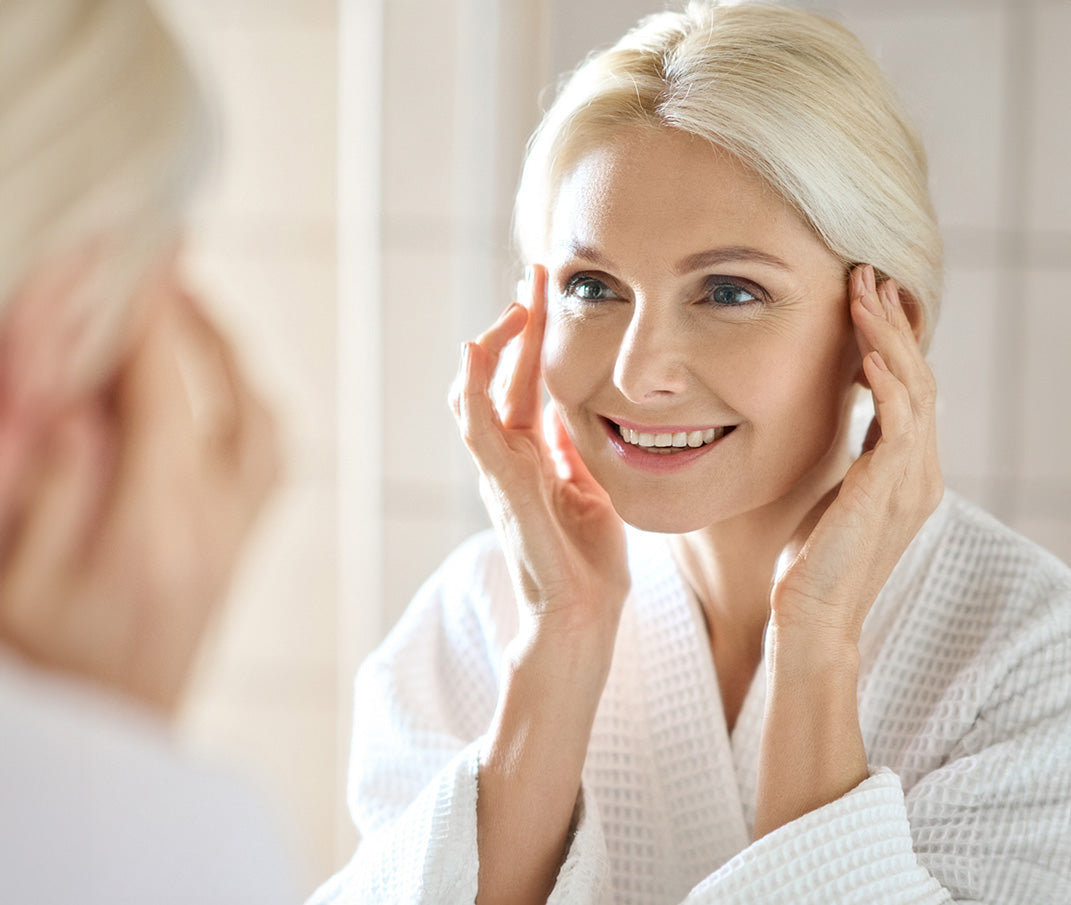Reti-Gel
Reti-Gel
Description
Nightly retinol gel designed to work with the skin’s natural lipid structure to improve radiance, boost glow and deliver firmer, healthier-looking skin.
Deeply Penetrating All-Trans Retinol Formula
A nightly, preventative gel formulated for deep penetration to yield more visible and lasting results. Formulated without water, Reti-Gel is designed to work with the skin's natural lipid structure to improve radiance, boost glow and deliver firmer, healthier-looking skin with each application.

Warning: For external use only. Discontinue use if signs of irritation or rash appear. Avoid contact with eyes. If contact occurs, rinse thoroughly with water. Keep out of reach of children. Use of a sunscreen is recommended during the day.
Sunburn Alert: Use a sunscreen, wear protective clothing and limit sun exposure while using this product.
Topical Retinoid: If you are pregnant, lactating, or planning to become pregnant, consult a physician before use
In your regimen
In your regimen
- Cleanse
- Step 2: Prep
- Moisturize
- Eye care
- Protect
After cleansing, place 1-2 drops of Reti-Gel in the palm of your hand and gently apply serum with your fingertips to the entire surface of the face, neck, and décolleté, as needed.
Targets
Targets
Skin elasticity and conditions for brighter, firmer, healthier-looking skin.
Suited for
Suited for
PM • All Skin Types
Key Benefits
Key Benefits
- Waterless formula ensure optimal stability and efficacy
- Less irritating minimalistic formula is suitable for all skin types
- Gel texture absorbs quickly and leaves a dewy finish • Suitable for nightly use
INGREDIENTS
INGREDIENTS
Isododecane, Polysilicone-23, Cyclopentasiloxane, All-Trans Retinol, Tocopheryl Acetate.
Couldn't load pickup availability
-
 Free Shipping On orders Over $75.00
Free Shipping On orders Over $75.00
-
 Fast Delivery Quick Fulfilment
Fast Delivery Quick Fulfilment
-
 Sign Up & Save Mailing List Perks
Sign Up & Save Mailing List Perks
Share



Retinol Gel by The A Method
Reti-Gel is a nightly, waterless retinol gel formulated with All-Trans Retinol and antioxidants to support radiant, firmer, and healthier-looking skin. Designed to work with the skin’s natural lipid structure, this gel promotes smoother skin texture and a glowing complexion with each application.
What does retinol do for your skin?
This vitamin A derivative can reduce the appearance of fine lines and wrinkles, improve skin texture, and reveal smoother, healthier-looking skin. By promoting cell turnover, retinol helps remove dead skin cells and allows fresh skin to emerge, making it a key ingredient in many anti-aging skin care routines.
Retinol can also refine the appearance of large pores and even out skin color by promoting consistent skin renewal.
What is a retinol gel?
What is All-Trans Retinol, and how is it used in a retinol gel?
Retinol gel products that use All-Trans Retinol—such as The A Method’s Reti-Gel—benefit from its stable formulation and consistent performance. This means you can expect a reliable, effective experience when using a retinol gel that features All-Trans Retinol.
Are there any side effects of retinol?
It’s important to start slowly, applying retinol every other night or as recommended, to allow your skin to build tolerance.
The A Method Retinol Gel features All-Trans Retinol, which is a potent and effective form of retinol. Because it’s a powerful active ingredient, it’s best to start gradually to avoid irritation. If you experience severe or persistent irritation, consult a board-certified dermatologist. They can help you adjust your skincare routine or recommend alternative products.
Can I use retinol while pregnant or breastfeeding?
If you’re pregnant or breastfeeding, talk to your healthcare provider before using retinol.
How does retinol compare to other topical ingredients?
When considering retinol with other topical treatments, it’s important to understand how it interacts:
- Retinol and salicylic acid: Both can support smoother skin, but they can also cause dryness or irritation if used together too frequently.
- Retinol and vitamin C: Vitamin C is a powerful antioxidant that complements retinol’s anti-aging benefits, though they’re often best applied at different times (e.g., vitamin C in the morning, retinol at night).
- Retinol and hyaluronic acid: Hyaluronic acid helps hydrate the skin, countering any dryness that may come from retinol use.
- Retinol and glycolic acid: Both encourage exfoliation, but using them together can increase the risk of irritation.
- Retinol with other topical treatments: Always apply a thin layer to clean, dry skin, and introduce other products gradually to avoid overwhelming your skin.
While retinol is a proven anti-aging ingredient, overuse can potentially damage your skin’s moisture barrier. For large pores, retinol can help by promoting cell turnover and refining texture. However, it’s important to pair retinol with hydrating moisturizers, avoid harsh exfoliants, and introduce retinol gradually to prevent irritation.
Are there different types of retinol?
Different types of retinol include:
- Over-the-counter retinol products: These are generally milder, making them suitable for most skin types.
- Prescription retinoids: These include tretinoin, which is stronger and often recommended by dermatologists for specific skin conditions.
Retinoid vs. retinol
Retinoids are the umbrella term for vitamin A derivatives that include both prescription-strength (like tretinoin) and over-the-counter (like retinol) formulations. Retinol is milder, making it more suitable for sensitive skin or beginners.
Note: Prescription retinoid vs. over-the-counter retinol is a common consideration in skincare. Talk to your healthcare provider about which is best for your specific skin concerns.
Tretinoin vs. retinol
Tretinoin, a prescription retinoid, works faster and is more potent than over-the-counter retinol but may cause more initial irritation. Retinol, on the other hand, gradually converts to retinoic acid in the skin, resulting in a gentler effect.
Retinol vs. vitamin A
Retinol is a specific form of vitamin A commonly used in skincare products. Vitamin A itself refers to a broader group of compounds (retinol, retinal, retinoic acid) with similar functions in skin health. All-Trans Retinol, a highly stable form of retinol, is often used in retinol gels because it’s easily converted by the skin into its active form.
Retinol (including All-Trans Retinol) speeds up skin cell turnover to allow fresh, healthy cells to surface, improving skin tone and texture. This process also slows skin cell overgrowth, which can help with clogged pores and rough texture.
When choosing between different types of retinol products, consider your skin type, goals, and the advice of a dermatologist.
What is The A Method Reti-Gel?
Key ingredients include:
- All-Trans Retinol: Encourages collagen production, which can help diminish the look of fine lines and wrinkles
- Tocopheryl acetate (vitamin E): Provides antioxidant protection
- Isododecane, polysilicone-23, cyclopentasiloxane: Form a waterless gel base that enhances penetration and leaves a dewy finish
Who should use Reti-Gel?
Can I use this retinol gel every day?
How does Reti-Gel improve skin texture and tone?
Does Reti-Gel help with fine lines and wrinkles?
Is Reti-Gel suitable for blemish-prone skin?
What are the side effects of using Reti-Gel?
Can I use Reti-Gel with other skincare products?
How long does it take to see results from Reti-Gel?
Is Reti-Gel safe to use during pregnancy or breastfeeding?
Can I use Reti-Gel during the day?
How do I minimize irritation when using Reti-Gel for the first time?
Is Reti-Gel cruelty-free and vegan?
Can I use Reti-Gel under makeup?
Does Reti-Gel help with dark spots?
Still have questions?
Recently Viewed
- Choosing a selection results in a full page refresh.
- Opens in a new window.









